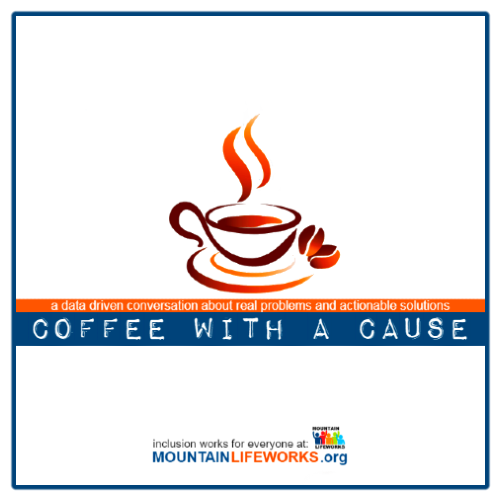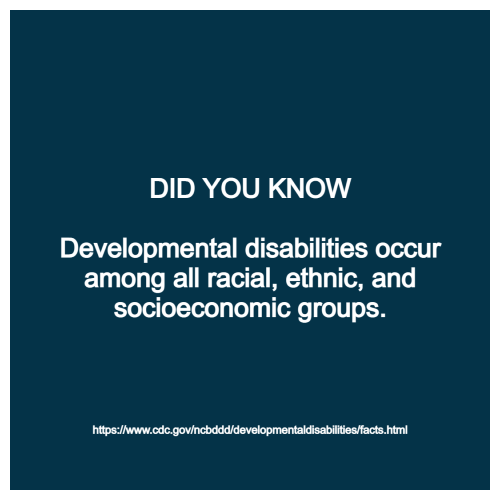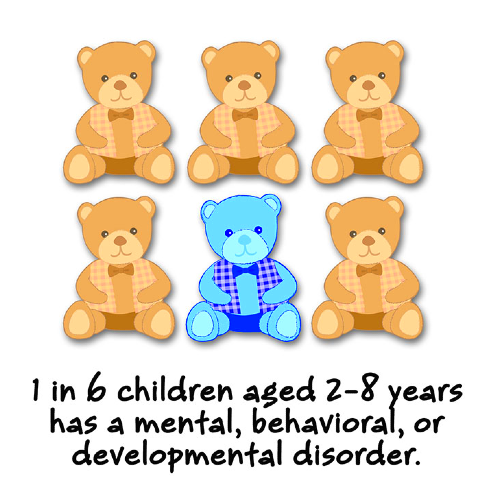
MARCH 2024 developmental disabilities month
March is Developmental disabilities
Awareness Month. The term "developmental disabilities" is a
broader category of often lifelong challenges that can be
intellectual, physical, or both. "IDD" is the term often used to
describe situations in which intellectual disability and other
disabilities are present.
About one in six children in the
About Intellectual and Developmental Disabilities (IDDs) | NICHD (nih.gov)
Developmental Disabilities | CDC
Attention-Deficit/Hyperactivity Disorder (ADHD)
is one of the most common neurodevelopmental disorders of
childhood. It is usually first diagnosed in childhood and often
lasts into adulthood. It is normal for children to have trouble
focusing and behaving at one time or another. However, children with
ADHD do not just grow out of these behaviors. The symptoms continue,
can be severe, and can cause difficulty at school, at home,
or with friends. Some adults
have ADHD but have never been diagnosed. The symptoms can
cause difficulty at work, at home, or with relationships.
Child Development Specific Conditions | CDC
Developmental Disabilities Month | Mountain Lifeworks

Coffee with a Cause march 2024
Data shows
unprecedented numbers signed up for Universal Pre-K (UPK) in
Frequently asked questions: Universal Pre-K in Colorado | 9news.com
Find Local Services | alliancecolorado
If 1 in 6 children experience a developmental disability or delay and will be diagnosed and require services in Colorado. In a county with 600 families that's 100 kids requiring diagnostics and services. Mountain and rural counties often already lack services due to qualifications, cost of living and lack of affordable housing. Now include 1 in 36 having Autism Sectrum Disorder. As numbers increase so do cost. This is only exacerbated by inflation. If we already have waitlists how will added demands be met?
Families push state to increase funding to autism service providers (denver7.com)

Coffee with a Cause march 2024
Did you know
Autism centers are closing their doors in Colorado (coloradosun.com)
The Silent Crisis of Autism Services in Colorado (behaviorspan.com)
Help Save Autism Services in Colorado (autismservicescolorado.com)
Mental Health By the Numbers | NAMI: National Alliance on Mental Illness
Remember a balanced approach uses verified data to identify problems and to propose actionable solutions. Only those willing to have difficult conversations can solve difficult problems. The first step to solving any problem is accepting the data indicating a problem... not blaming the messenger or method of delivery.
So join us for Coffee with a Cause and let's keep the conversation going each month with more data and actionable real life solutions!